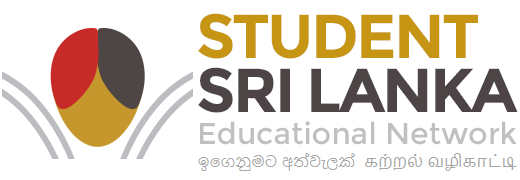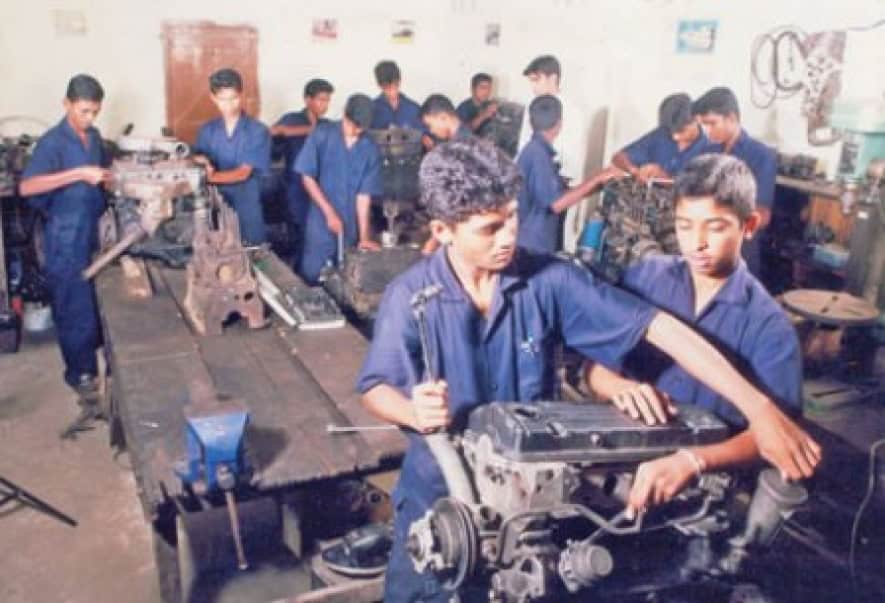Many students want to do O/Ls, A/Ls, and then university degrees. These have been the main way to show our education level for a long time. But now, there’s a new option – the NVQ system.
Why is NVQ important?
Some students find O/L and A/L exams difficult. If they don’t pass, finding good jobs or continuing studying can be hard. This has caused problems for many young people and some job areas in Sri Lanka.
The government saw this problem and created the NVQ system to help. NVQ gives you certificates for job skills at different levels. You can choose the level that fits the job you want. You can also keep studying to reach higher levels if you wish.

What is the NVQ system?
The NVQ system is a way to get certificates for job skills. It’s recognized in Sri Lanka and other countries. There are 7 levels in the NVQ system, from basic certificates to diplomas and degrees. Many countries use systems like NVQ to help people learn job skills.

Where can you get NVQ training?
For NVQ Levels 1-3:
Level 3: Similar to O/Levels, but for a specific job
You can follow a Competency Based Training (CBT) course accredited by the Tertiary and Vocational Education Commission (TVEC). Attend training at Private Sector or one of the 382 vocational training centers or 14 training institutes under the Ministry of Youth Affairs and Skills Development. If you have prior experience, you may be eligible for Recognition of Prior Learning to obtain the NVQ certificate.
For NVQ Level 4: – Similar to A/Levels, but for a specific job
- You can study at Technical Colleges, NAITA, VTA or various other private institutes offering these courses.
- You can study full-time or part-time.
- Courses can last from 6 months to 3 years.
Location map showing Technical Colleges and Colleges of Technoloyg (pdf)
For NVQ Levels 5 and 6:
You can obtain level 5 Diplomas and Level 6 Higher diplomas in various places:
- Vocational Training Authority (VTA): The VTA provides a variety of diploma-level courses under the NVQ system, including NVQ Level 5.
- Colleges of Technology. There are 9 of these colleges, one in each province.
- NAITA – National Apprentice and Industrial Training Authority – About 150 craft training courses are operating under 22 vocational fields.
- Sri Lanka Institute of Advanced Technical Education (SLIATE) – If you have completed the GCE (A/L) Examination, then you can now apply for Higher National Diploma (HND) courses here.
- Institute of Engineering Technology (IET) in Katunayake is diploma-awarding in Katunayake, Sri Lanka, specializing in the field of engineering.
- Korean Tech – KTEC – offering vocational courses in collaboration with Korea.
- Department of Agriculture: They offer an NVQ Level 5 program, specifically a Higher National Diploma in Agricultural Production Technology, aimed at those interested in agricultural fields.
- Ocean University of Sri Lanka: This institution offers NVQ Level 5 and Level 6 courses, providing National Diploma and Higher National Diploma certifications.
For NVQ Level 7:
- You can get a Bachelor of Technology degree from the University of Vocational Technology (UNIVOTEC).

The NVQ system gives you many choices. You can start with basic skills and keep learning until you get a degree if you want. This system helps you learn practical skills that employers need.
What courses/ Industry sectors are available?
The National Vocational Qualifications (NVQ) system in Sri Lanka recognizes various industry sectors through the Tertiary and Vocational Education Commission (TVEC). Key sectors include:
- Construction: Covering trades such as masonry, plumbing, and electrical work.
- Automotive: Training in automotive engineering and related technologies.
- Information Technology: Courses in software development, networking, and IT support.
- Textiles and Garments: Focused on garment manufacturing and related processes.
- Hospitality and Tourism: Including hotel management, culinary arts, and tourism services.
- Electrical and Electronics: Covering skills in electrical installation and electronics manufacturing.
- Health and Social Care: Training for healthcare professionals and support staff.
- Beauty and Hairdressing: Courses in cosmetology and related fields.
- Agriculture: Including modern farming techniques and agribusiness management.
- Manufacturing: Skills related to various manufacturing processes and quality control.
Check full-time courses offered by VTA: https://course.vta.lk/program/general/
Check all courses: https://course.vta.lk/
Remember, NVQ is different from O/Ls and A/Ls. It focuses on job skills. This can be a good choice if you want to start working sooner or if you prefer learning practical skills.
Think about trying NVQ as you plan your future. It could be a good way to start your career and keep improving your skills!






Leave a Reply